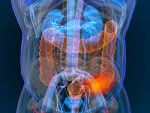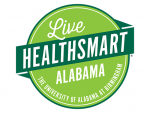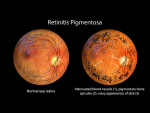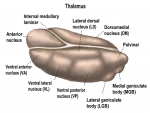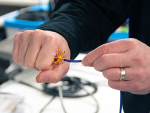Displaying items by tag: school of medicine
The Social Work Partnership will bring together academicians, students, and social workers currently working in the field to inform best educational practices aligned with the field requirements.
Tagged under
Give As One is 48 hours of collaborative fundraising to support UAB’s students, faculty and community. Give As One amplifies the power of any size gift through matches and challenges from generous donors.
Tagged under
UAB experts says that individuals can prevent or decrease symptoms of sleep apnea by making small lifestyle changes.
Tagged under
Mortgage lending discrimination in the 1930s is still geographically associated with inequities in colon cancer care today. Colon cancer often can be treated successfully if detected early.
Tagged under
UAB researchers say the presented data indicates that a younger age and higher HbA1c at baseline predict early treatment failure and point to the need for more aggressive initial treatment in these patients.
Tagged under
Through a generous gift from Novo Nordisk Inc., Live HealthSmart Alabama is beginning to expand statewide, starting in central Alabama with Selma, Demopolis and Camden, while taking steps to make good health simple — one person, one family and one community at a time.
Tagged under
Participants between the ages of 18 and 60 who received peer coaching showed significant reduction in systolic blood pressure.
Tagged under
A modifier gene is one that changes the observable characteristics, called the phenotype, or molecular expression of other genes.
Tagged under
Tagged under
Clinical trial findings from the LATITUDE study show promise in long-acting HIV treatment for patients who have long struggled with daily HIV oral medications.
The program is designed specifically to treat women and address the distinct concerns and unique risk factors that women may experience.
Tagged under
A large nationwide study found that Black individuals carrying a genetic mutation in the TTN gene were at an increased risk of adverse clinical outcomes.
Tagged under
Results showed that African American veterans with PTSD had a higher risk of rehospitalization than those without PTSD. However, white veterans with PTSD did not have a significantly higher risk of rehospitalization post-stroke.
Tagged under
In the mouse brain, two neural pathways were discovered: The first is active during motivation; the second is active only at the termination of motivation. In humans, these pathways could underlie motivational dysfunctions present in various psychiatric conditions.
Tagged under
The award recognizes those in the medical community who have made monumental contributions to cancer prevention, control research and practice.
Tagged under
Pulsed-field ablation disrupts the cellular membranes of vein tissue, irreversibly preventing those membranes from conducting electricity. This protects the heart from the rapid impulses which can cause atrial fibrillation.
Tagged under
UAB researchers leverage data from the SPRINT trial to show that intensive control of blood pressure reduces troponin I levels and this decrease in troponin I levels is associated with reduced risk of cardiovascular disease.
Come together with members of the UAB community to raise money for student scholarships. This year’s race will be at Crestline Village in Mountain Brook.
Tagged under
Individuals in their 20s and 30s should be aware of the warning signs of colon cancer to know when to seek medical attention.



